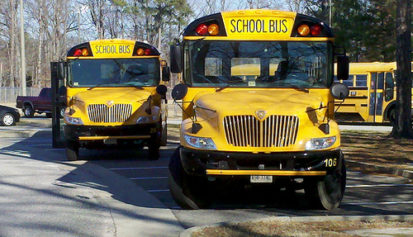It’s not about hot-housing your child to give her the academic edge on the first day of school; it’s about making her feel happy and confident in a new stage in her life.
If your child has basic skills before starting primary school, she’ll find it easier to adapt to school life and the rest will follow.
Hopefully, your child will have met her teacher and classmates at the school’s open day before she actually starts. If you prepare her by explaining what’s going to happen and what’s expected of her, it’ll be make her less nervous.
1. Going to the bathroom
Making sure your child knows how and when to go to the toilet and the importance of washing her hands is highly desirable for child and teacher alike.
Parenting expert and author Karen Doherty says: “By far the most important thing is that they are able to handle their bathroom needs. In fact, most schools won’t take children unless they can.”
Teachers are seeing more and more kids who are not toilet trained before school. A survey by a teaching union suggests that over the past five years, 62 percent of primary school staff in the U.K. have noticed an increase in the number of children wetting or soiling themselves during the school day.
They blame it on parents failing to toilet train their children before they start school, and they say it impacts teaching time when teachers and teacher’s assistants are spending time changing kids’ pants.
2. Get changed for playtime
Get your child to practice taking off and putting on her coat. Kids will be expected to wear a coat to play outside and if she can do it quickly, she’ll have more time to play outside with her new friends. Forget fiddly buttons and hard-to-do-up zips – pick a coat with fasteners designed for little fingers.
Same goes for physical education. Easy-on pumps, Velcro fastening shoes and elasticated waistbands do away with problems with laces, buttons and zips.
3. Eat lunch
For school lunches make sure your child can use a knife, fork and spoon. If she has a packed lunch check that she can open her lunch box, that she knows how to peel a banana or take the lid off a yogurt container.
Sometimes a big, noisy dining hall is a scary place for children, but as soon as she’s gone through the routine and knows where to sit and what to do, she will hopefully adapt quickly.
4. Speaks up
In the months leading up to the start of school, play pretend games where you take turns acting out the role of the teacher.
Explain to your child that she may need to put her hand up if she wants to speak or get the teacher’s attention, ask to go to the bathroom or answer a question.
Encourage your child to make eye contact with adults and try not to be shy.
It really helps if your child can recognize her own name. It’ll help them find their coat hook and drawer and recover any items of clothing in lost property.
Your child will probably have a little identifying a picture of an object, like a frog or a doll near her name to help her. She may even have a photo of herself.
6. Know the rules
Your child needs to realize that at school it’s not all about them, which is a pretty hard lesson for some children to learn if they have had four or five years of individual attention at home. She needs to know how to share, that she can’t hit other children or throw tantrums. It’ll help her make friends as well.
7. Listen and focus
It’s important for children starting school to listen to what their teacher says and follow simple instructions and directions…
Read More: webmd.boots.com

